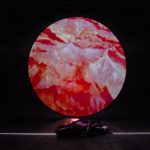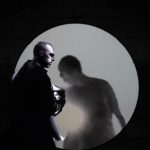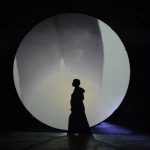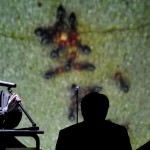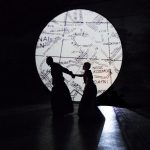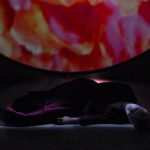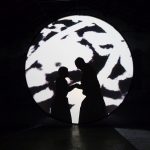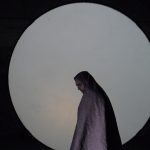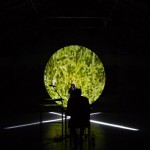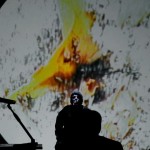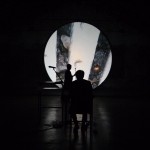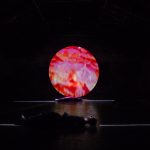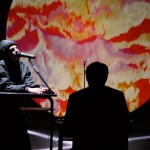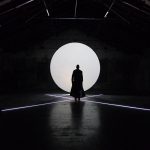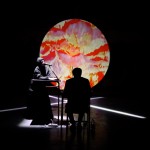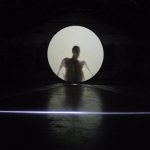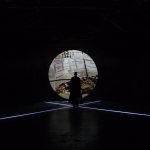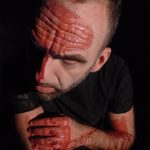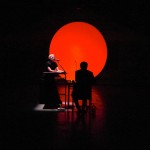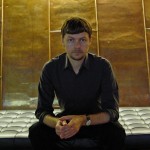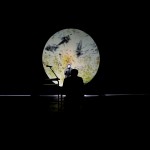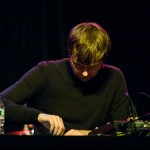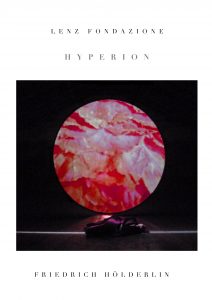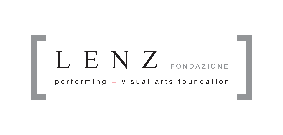
HYPERION
The fruitful artistic collaboration between Lenz Foundation e Paul Wirkus, Polish composer of electronic music, per l’ultimo paragrafo del trittico ispirato all’Hyperion, the famous novel in a epistolary form of youth work of Friedrich Holderlin.
In the dead Greece, Doubles died as oppressed by the Turks and immemorial of the gods, Athens appears to young hypeerion like un immenso naufragio, dopo che gli uragani e i marinai fuggiti via e la carcassa della flotta frantumata giace irriconoscibile sul banco di sabbia. But the spirit of the city had already died before the destroyers traveled Attica: solo quando le case e i templi sono morti le bestie selvagge osano inoltrarsi oltre le porte e nelle strade.
E così prosegue: I was struck by the ancient door through which it came out of the ancient city towards the new…ora questa porta sta là, muta e vuota, Like a fountain that can, from the cinnamon from which joyful and clear gushes came out, fresh waters. The sacred chaos of Athens. L’eco del presente rimbomba assordante tra le pieghe di un testo profetico.
To the poet, philosopher, German romantic playwright, crazy died after almost forty years lived locked up in his tin-tuba house, Lenz has dedicated a single research path in Italy in the past years. Dal 1991 al 1994 Maria Federica Masters e Francesco Pititto in fact they edited the mise-en-site of almost all of the works of Hölderlin, specially portrayed for the scene: the three drafts of The Death of Empedocles, Oedipus the tyrant, AIACE, Oedipus in Colono, Antigone, Hölderlin-Foscolo, I was of the fourths.
After several dramaturgical raids in other creations – Faust 2, Chaos, In the 2014 The directors return to the Amato author, con Hyperion/Diotima A visual and musical performance inspired by Diodima, Among the most complex of the Hölderlinian mythography and the protagonist of the philosophical-amoing dialogue with the young Hyperion. Segue Hyperion #2 In the 2015 con cui viene dato più ampio respiro progettuale al lavoro scenico-musicale, tramite la residenza artistica di Paul Wirkus e la ripresa di un’importante collaborazione con Adrian Engelbrecht, poet, musician, performer, Versatile and multifaceted artist, For a long time organic to the creative path of Lenz and interpreter in the past of the various Hölderlinian scenic writings. In the 2016, terzo anno di residenza artistica, Paul Wirkus e Lenz danno compimento al lungo percorso progettuale: Hyperion è un’opera-trittico in cui si fondono costantemente presente e passato, Germany and Greece in a continuous mutual exchange of perspectives and landscapes.
HYPERION
fromHyperion by Friedrich Hölderlin
Music + Live Electronics | Paul Wirkus
Dramaturgy and imagoturgy | Francesco Pititto
Installation | plastic elements | regia | Maria Federica Masters
Performer | Adrian Engelbrecht, Valentina Barbarini
Luci | Alice Scartapacchio
Production | Lenz Foundation
– Hyperion/Diodima - Nature Dèi Teatri 2014. Art, useful passion
by Daniel Rizzo, Evilala.it_19 December 2014
Dall’Hyperion di Friedrich Hölderlin, The character of the famous Symposium is the protagonist of the new creation signed by Lenz Refrazioni and the Polish musician Paul Wirkus. Extraordinary manifestation of Platonic thought (It was the one who started Socrates with ideal true love) and female pole of the epistolary exchange with the beloved hypeerion in the novel of Hölderlin, Diotima is "among the most complex of the Hölderlinian mythography". Maria Federica Maestri and Francesco Pititto therefore return to investigate the "poet, philosopher, German romantic playwright "after« The staging of the three drafting of the death of Empedocle, Oedipus the tyrant, Antigone, Hölderlin-Foscolo, The fa de 1991 e 1994. A renewed interest that, not by chance, It takes place within the three -year project of the Festival Natura Dèi Teatri inspired by "philosophical suggestions taken from the work of Gilles Deleuze", because the theme of the difference, of the ideological conception of identity and repetition, of the attempt to revolt against a dialectical fate with homologating and lacerating results, It is the ideal conceptual framework to put the fundamental question of "in -depth investigation on the languages of contemporary creation". The live electronic sounds of Paul Wirkus contribute to giving full -bodied density to the setting of a beautifully simple set -up with an exemplary visual impact as it manages to return in the sign (scenographic) the perfect coincidence of meaning and signifier, thus advocating the full power of the Nietzschian affirmation "there are no facts, only interpretations »and the radicality of an intuition that recognized the interpretation (inter)subjective the ability to shape consciences and regulate bodies. An intuition reiterated almost explicitly on stage (“Forget the time, and don't count the days of life. What are the one hundred years in front of the instant in which we feel in two and only afterwards do we touch ") and which is still current today (therefore historically unrelated), Although it was Swiss in the idea that - paraphrasing that quote - there are only opinions and non -arguments. The round sheet, White and tense that Valentina Barbarini crosses very concentrated, While decking fragments ratradots dally'hyperion, It is the sublimated representation of the fullness of the Parmenideo being in all its paradoxicality (empirical). Indivisible and perfect, immobile and identical (for reason), appears (You have sensible) acted by an incurable inconsistency due to the presence of that human in the making that, Indeed, we will see physically and not projected. Therefore concrete, outside and not inside (if not as a shadow), Because inside it will only be able to scroll the images of a nature from which the man - unbearable "acid grapes ... in the midst of sweet grapes" - is banned. Maieutic and erotic, creative power of art and nature in conflict with a homo that, proclamationosi sage, has forgotten its animality, in Diotima / Hyperion Di Lenz we see the drag -like research convergence with the investigation in favor of a renewed visual return of primordial existential dilemmas: The yearning of Infinito which structurally torments the human being and his inevitable shipwreck ("But man is god just man! And if he is a god, then he is beautiful! [..] But my arms were increasingly tired and anguish dragged me down, inexorable"); The craving of a pantheistic harmony (“I was there, your. A flower between the flowers ") and the perception of historical defeat in modernity («Defend us from the flies will be our future occupation. Gnaw the things of the world, as children. Aging among the old is the worst thing. They start from the heart and return to the heart, the vene "). Diotima is then the intimately contradictory symbol of the risk of disengagement and solitude ("That I care about the shipwreck of the world! I know nothing more than my blessed island "). A risk that, seen within this specific artistic context, "An industrial building from the historical suburbs of Parma" where culture as well as resisting continues to give itself, it seems at all, How much to dispense strength and passion. Just like that song of hope and beauty that was Diotima for Hyperion. A show of disarming consistency.
http://teatro.persinsala.it/hyperion-diotima-natura-dei-teatri-2014/12540
– German romanticism according to the Lenz
by Laura Bevione, Amandaviewontheatre_16 December 2014[…] The Lenz have returned to deal with an author, Friedrich Holderlin, who in the past have repeatedly attended. The chosen text is a youthful epistolary novel, Hyperion, that the German writer dedicates to Diotima - according to classical literature the woman loved by the unfortunate hypeerion - identity behind which the woman he was in love with. The Parma company chooses to entrust to a single actress - Valentina Barbarini, Mighty and highly emotional presence - the parts of both lovers and to make acting dialogue with powerful and obsessive music composed of hoc by Paul Wirkus, Polish electronic musician who has been collaborating with Lenz for some time, And with the images that flow on a circular screen on the bottom of the stage. The word - poignant and passionate - is amplified by the antinaturalist and ardent trend of acting as well as by the anxious rhythm of music, elements to which only the landscapes and natural details that occur on the screen are opposed only. Romantically, Nature is a non -deforming mirror but truthful of the soul - instead of the external aspect - of men. A show, as well as Adelchi, that Amanda hopes that many manage to see.
– Dentro il limite per superarlo: Hyperion, o del nobile febbrile ascetismo di Lenz
di Giulio Sonno, PaperStreet_26 novembre 2016[…] Statuario, minimale, denso (46 minutes), come sempre scenicamente affascinante, Iperione non è sicuramente uno spettacolo immediato e il sua estremo rigore, a nostro avviso, non riesce a mediare fino in fondo tra la dimensione rituale (in cui nessun elemento deve predominare sugli altri) e l’essenza della parola poetica hölderliniana che – teatralmente parlando – non emerge pienamente, intrappolata in una declamazione troppo calcata e algida. Ciononostante non possiamo fare a meno di scorgervi una sincera confessione-identificazione del virtuoso (auto)isolamento di Lenz, che con onestissima coerenza continuano a perseguire – proprio alla maniera di Iperione – la loro impossibile ma inesausta ricerca. […]
http://www.paperstreet.it/cs/leggi/hyperion-lenz-maestri-pititto-holderlin-parma-recensione.html#sthash.LIMuJ722.dpuf







